Welcome to Developmental Biology
Improving child health through cutting-edge research and rigorous scientific training.
Section of Developmental Biology News

Marycruz Flores Flores, Postdoctoral Fellow has been selected as a Pew Latin American Fellows Program in the Biomedical Sciences 2025
Marycruz Flores Flores, Ph.D., will explore how membrane potential—the distribution of ions across cell membranes that triggers various physiological functions—helps to orchestrate cardiac development. https://www.pew.org/en/about/news-room/press-releases-and-statements/2025/08/12/pew-supports-10-latin-american-fellows-pursuing-scientific-advances
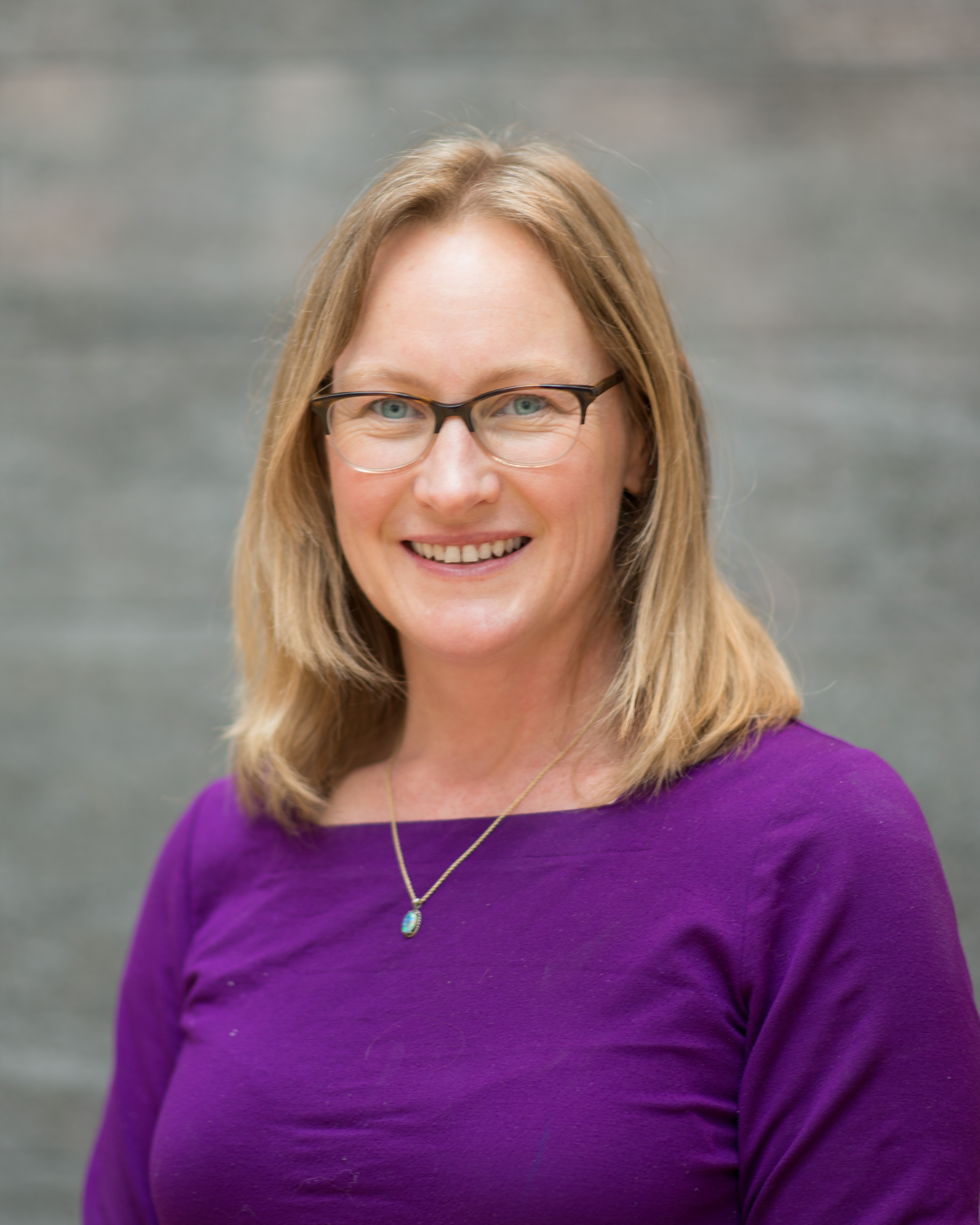
New Developmental Biology publication from the Bates Lab, August 2025
Ion channels control activity-responsive genes that are regulated by SRF in the embryonic developing palate. Deletion of a potassium channel called Kcnj2 disrupts BMP signaling in the embryonic developing palate. Developmental Biology, August 7, 2025 https://doi.org/10.1016/j.ydbio.2025.07.019
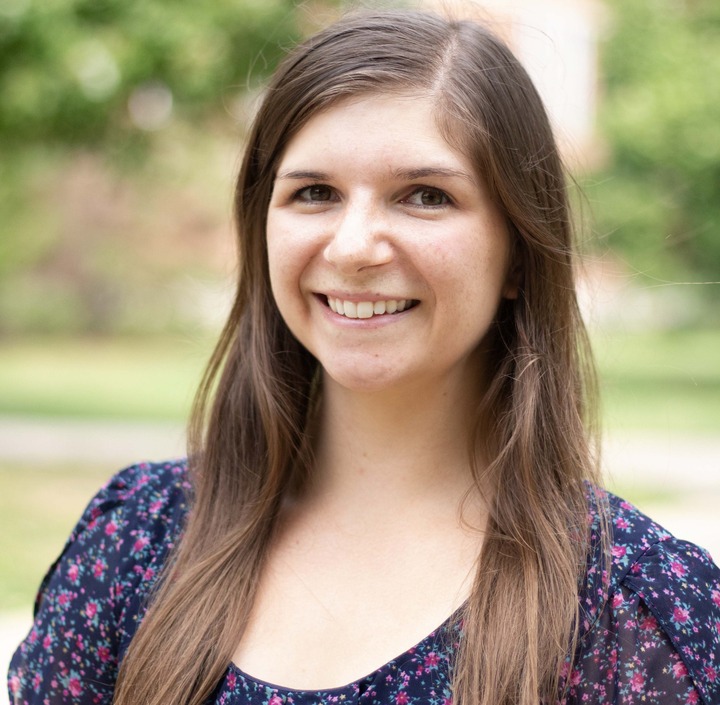
Katie Ranard, Post Doctoral Fellow has been awarded K99 from NIH/NIND
Katie Ranard received an NIH/NINDS K99/R00 Pathway to Independence Award (K99NS144387) to study how nutritional status impacts mechanisms guiding brain development. Her project will use a novel omega-3 fatty acid deficient zebrafish model and powerful live-imaging approaches to reveal the role of maternal nutrition in neurodevelopment at single-cell resolution August 2025

Sheila Gupta MD/PhD candidate has been awarded a F31 from NIND
Sheila Gupta, a MSTP and Molecular Biology student, received a three year NRSA F31 fellowship award from the National Institute of Neurological Disorders and Stroke for her project entitled, “Axon selection for myelination by excitatory postsynaptic factors”. July 2025
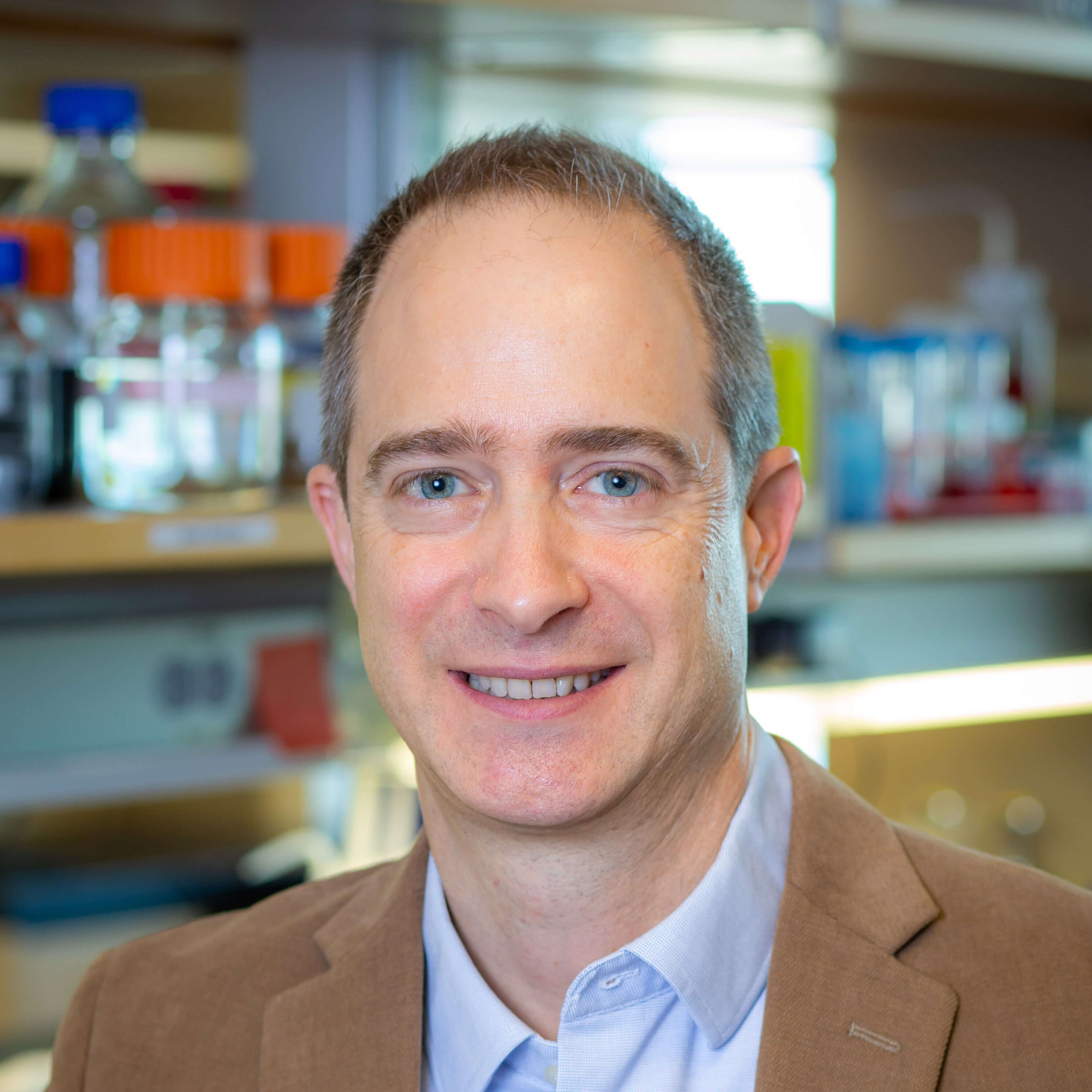
New elife publication from the Santoro Laboratory, June 2025
In mice, discrete odors can selectively promote the neurogenesis of sensory neuron subtypes that they stimulate; Kawar Hossain, Madeline Smith, Karlin E. Rufenacht, Rebecca O’Rourke, Stephen W. Santoro The birthrates of olfactory sensory neurons that detect some odors are accelerated in mice that are exposed to those odors, revealing a new mechanism by which specific odor sensitivity may be enhanced through experience. Developmental Biology, Neuroscience, 18, Jun 2025 DOI: 10.7554/eLife.96152
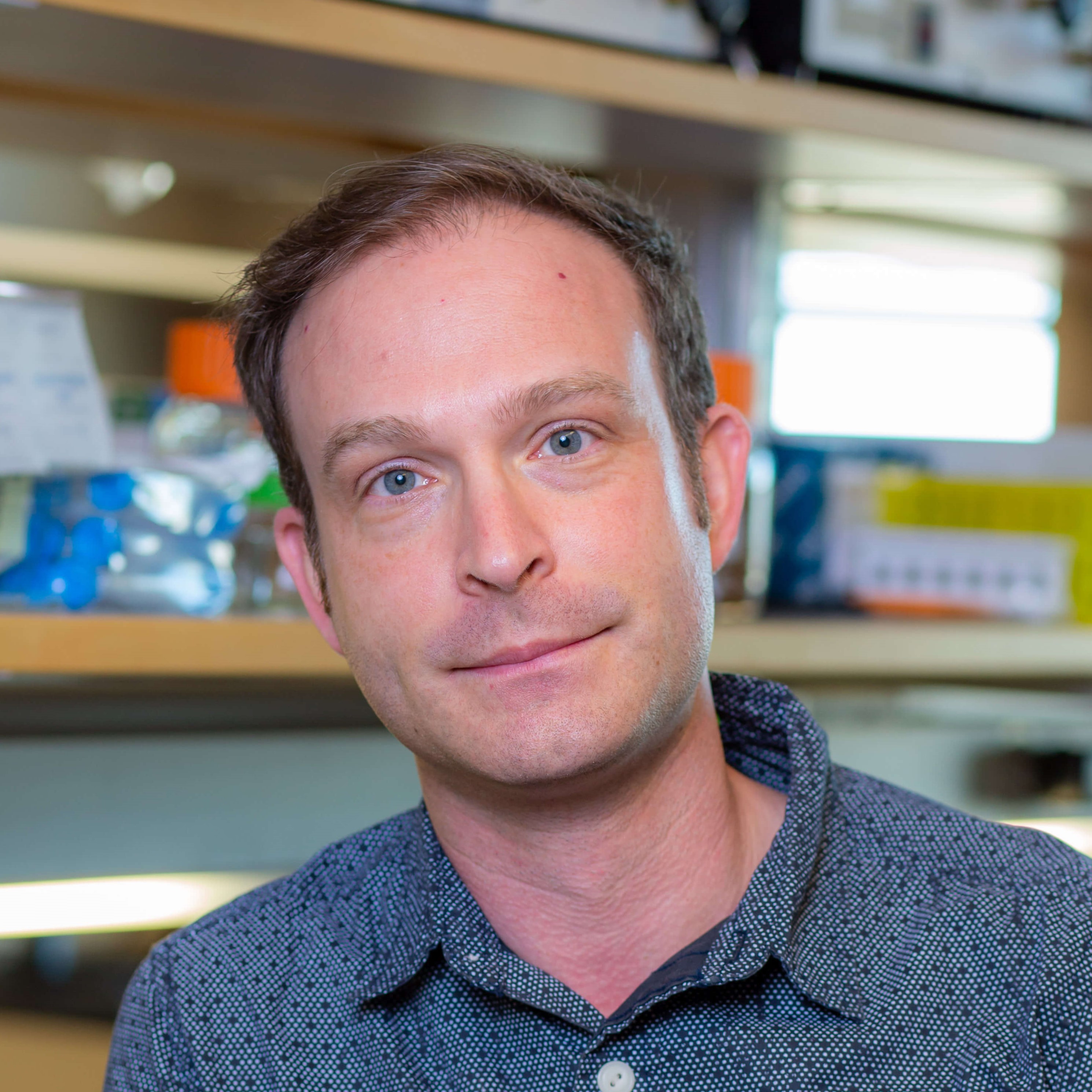
Christian Mosimann, Associate Professor has been awarded R24 from NIH ORIP
Christian Mosimann, PhD, Johnson Chair and Associate Professor of Pediatrics (Section of Developmental Biology) together with Alexa Burger, PhD, Associate Professor of Orthopedics (Department of Orthopedics) received a prestigious four-year NIH ORIP R24 grant to advance zebrafish transgenesis applications for biomedical research. With nearly $500k direct costs per year, the award follows the labs’ previous successes in site-directed transgenesis for the zebrafish model (Lalonde et al., Sci. Adv. 2024) and will now allow expansion of the teams’ long-standing efforts in research tool generation for zebrafish. Martin Breuss, PhD, Assistant Professor of Pediatrics (Section of Genetics and Metabolism) is co-investigator on the work and tackles the streamlined mapping of transgene integrations using latest long-read sequencing technology. The awarded grant highlights the national and international visibility of CU Anschutz and our Department’s Section of Developmental Biology as emerging major hub for using zebrafish as powerful biomedical model to study pediatric disease mechanisms and more. July 2025
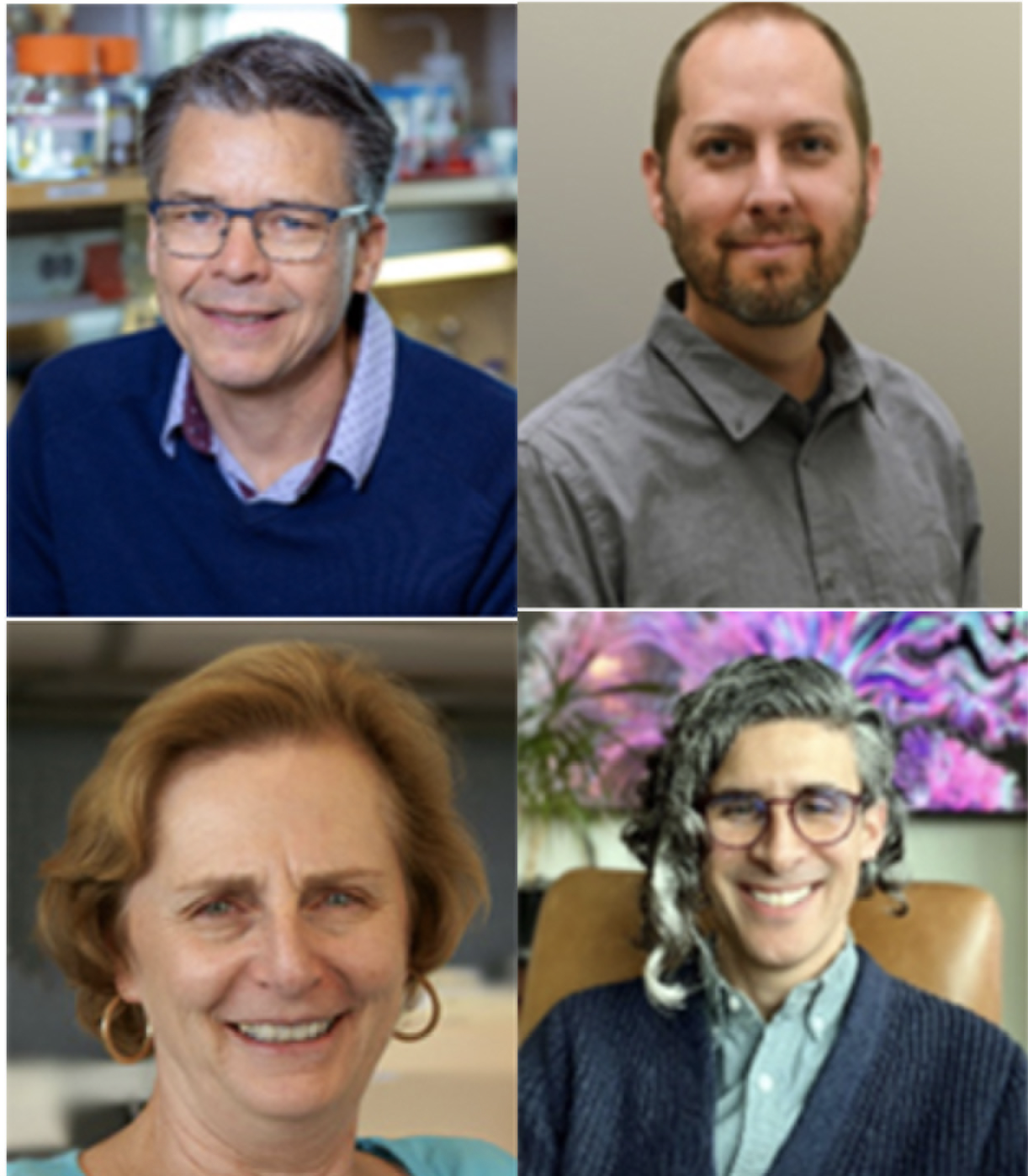
Team Appel awarded CU ASPIRE Program funding
A team consisting of Bruce Appel, Professor and Head of the Section of Developmental Biology and Diane G. Wallach Chair of Pediatric Stem Cell Biology, Wendy Macklin, Professor and Chair of the Department of Cell and Developmental Biology, Santos Franco, Associate Professor of Developmental Biology, and Ethan Hughes, Associate Professor of Cell and Developmental Biology, received one of three 2025 CU ASPIRE awards. Their project, entitled, “Molecular Mechanisms of Activity-Regulated Myelination” aims to determine how neuronal activity regulates gene expression in myelinating glial cells. June 2025
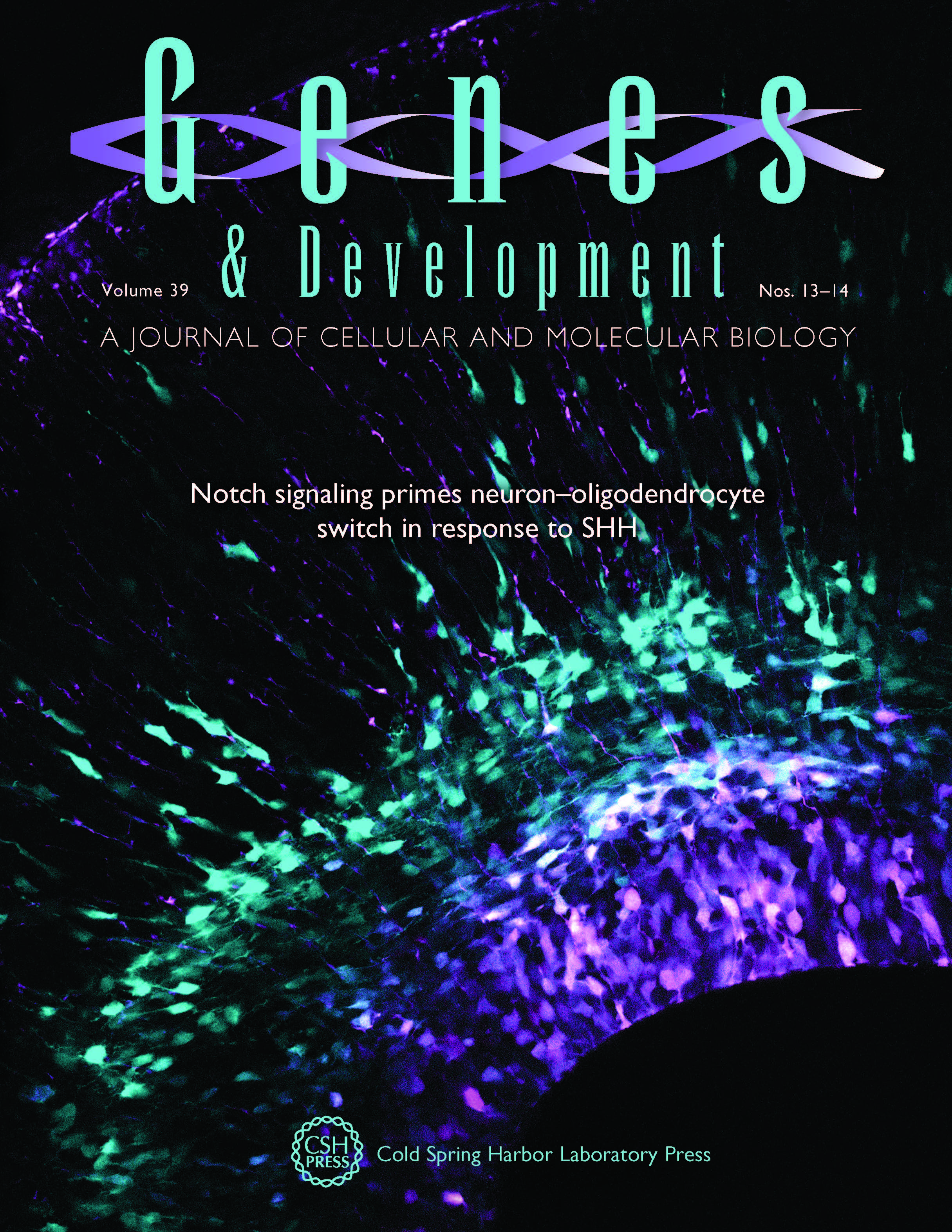
New Genes & Development Publication from the Franco Lab June 2025
Santos Franco, PhD, Associate Professor of Pediatrics, is corresponding author of an article “Epigenetic priming of neural progenitors by Notch enhances Sonic hedgehog signaling and establishes gliogenic competence,” published July 1 and featured on the cover of Genes & Development. 11 co-authors are from our campus, including Bruce Appel, PhD, Professor of Pediatrics and Section Head of Developmental Biology, and Charles Sagerstrom, PhD, Professor of Pediatrics and Vice Chair for Basic Research. Published in Advance May 22, 2025, doi:10.1101/gad.352555.124 Genes & Dev. 2025. 39: 886-906 © 2025 Tran et al.; Published by Cold Spring Harbor Laboratory Press
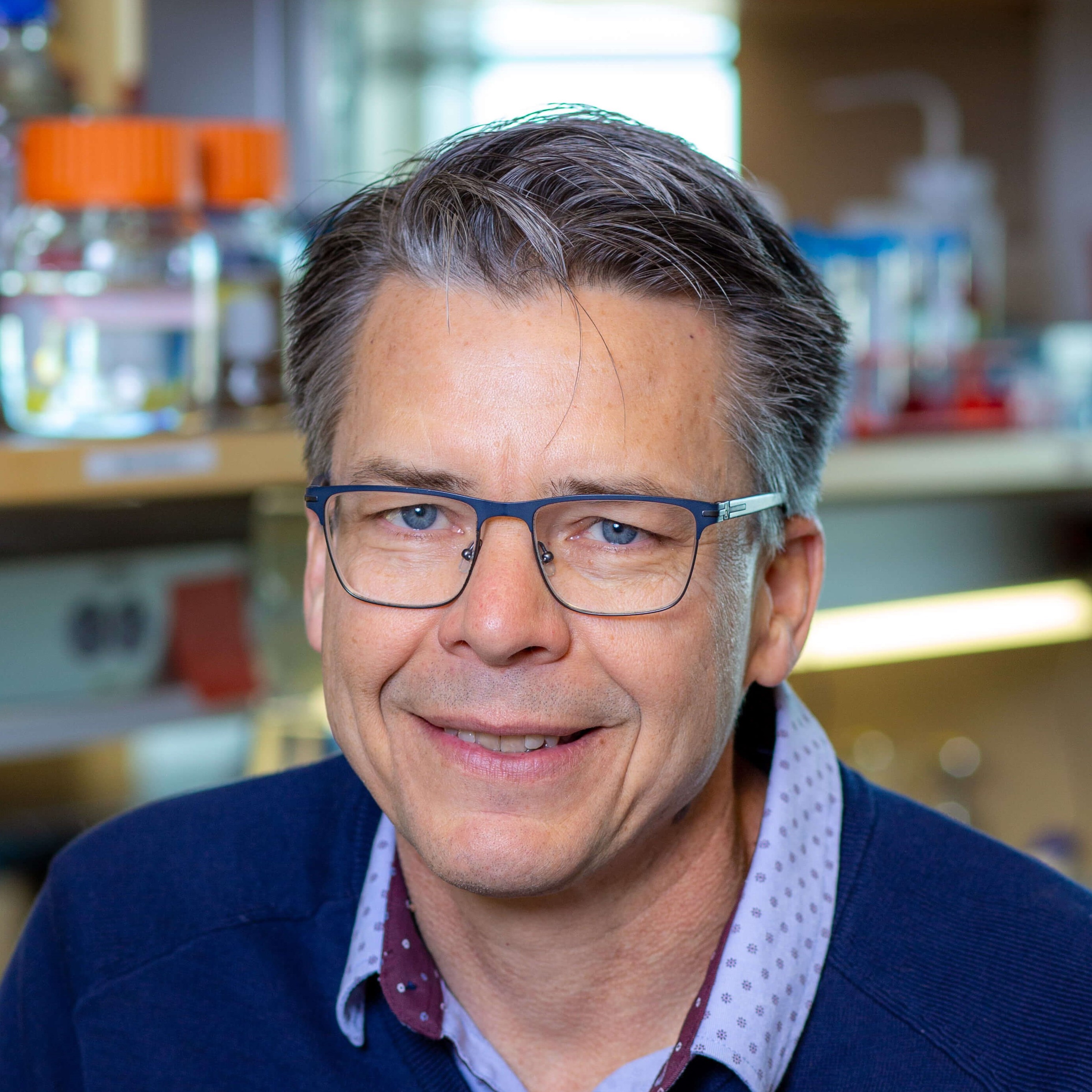
Appel awarded R21 grant from the National Institute of Mental Health
Bruce Appel, Professor and Head of the Section of Developmental Biology and Diane G. Wallach Chair of Pediatric Stem Cell Biology, was awarded a new NIMH R21 grant entitled, “A Synaptogenic Adhesion Code for Myelin Specificity”. This project aims to elucidate underlying causes of white matter abnormalities in neurodevelopmental disorders. May 2025